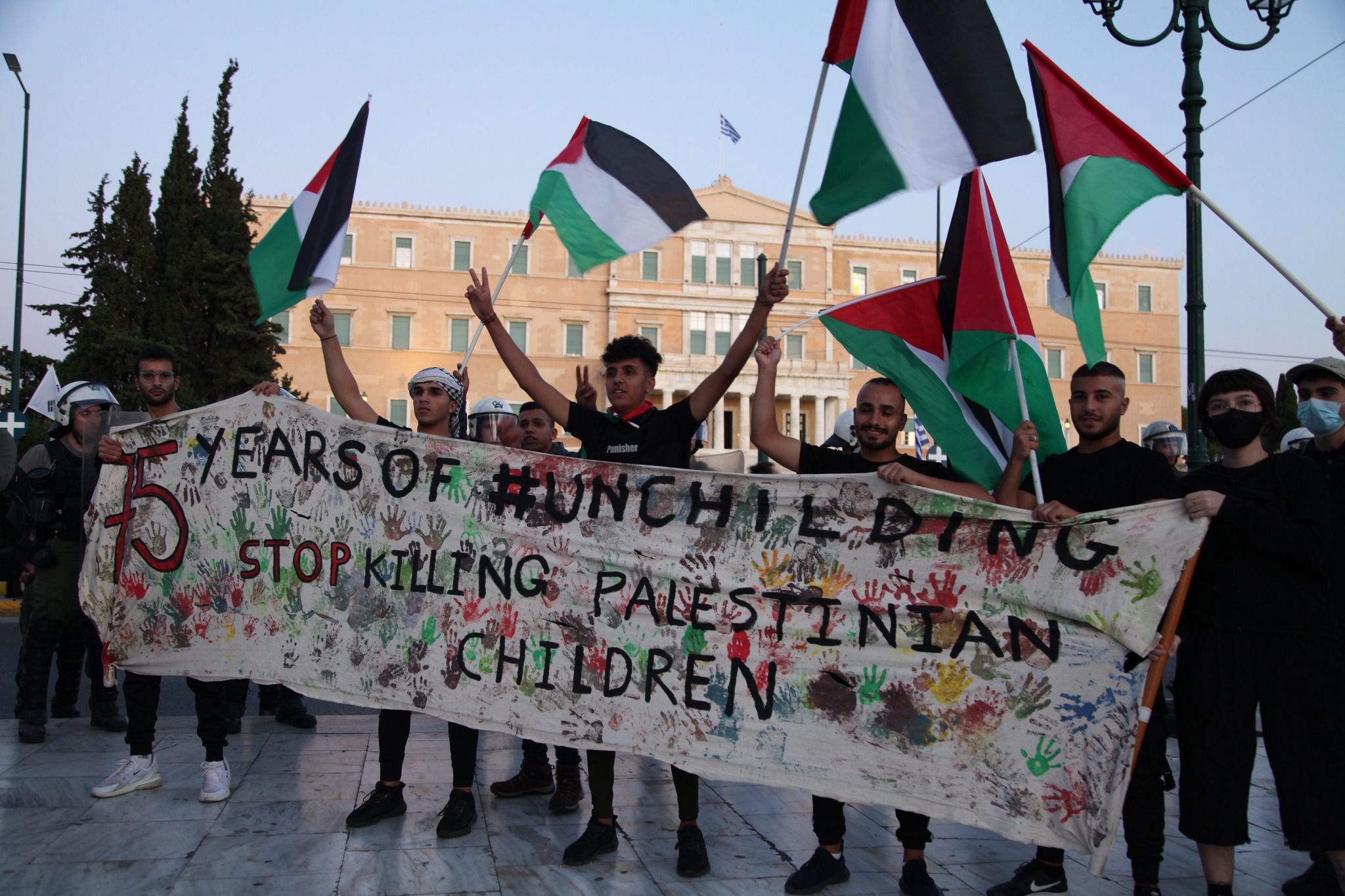Photo: Demonstrations against the bombing of Gaza and the occupation. October 12, 2023. Athens
Zionism followed a similar path in the 1980s to foster the growth of Islamist groups, as the United States did to counter the Soviet Union and prevent the emergence of leftist governments in the region and specially in Afghanistan. Zionism, which shows no interest in the establishment of an independent Palestinian state, is primarily interested with the security threat posed by Hamas rockets and military actions. Hamas is deeply entrenched in the Islamic ideology and strategy of Islamic resistance, which creates a complex interdependence with Zionism and right-wing tendencies in Israel.
The behavior of Hamas and Islamic movements, in contrast to the terrible scenes and heinous crimes of the Israeli army soldiers and the slogans “Death to the Arab” and “The Arab must be killed” among the right-wing tendencies of Israel, maintains the vicious cycle of anger and violence.
In such a circomistances, Zionism and Netanyahu’s right-wing government witnessed growing protests against it, which gave rise to a new vision. From global demonstrations to Jewish human rights organizations to those who took to the streets inside Israel, from rabbis who prayed for Palestinian children to small but important joint Jewish-Palestinian groups, especially among women. They dared and expressed their solidarity with the Palestinians. They never considered the Palestinians as “enemies” and they did this in the most suffocating conditions.
The government of Israel has not only taken control of both parts of the territories outlined in Resolution 181 but has also incrementally annexed the West Bank, which it captured in the 1967 war. The continuous establishment of settlements by extremist Jewish communities has transformed the West Bank into a fragmented region. Israel is reluctant to return it or officially annex it to prevent Palestinians from gaining a majority and the right to vote. The current perspective of Israel’s leaders differs significantly from the views of Theodor Herzl, who was a bourgeois liberal influenced by European Enlightenment, and the ideals of the pioneers of the Zionist socialist movement.
Conversely, it appears that the legacies of the left and at times “Marxist” factions within the Palestinian liberation movement have largely faded. The Palestinian masses find themselves caught between the extreme Islamists of Hamas and the corrupt bureaucrats of the Palestine Liberation Organization, both of whom rely on financial assistance and weapons from governments in the Persian Gulf region. Meanwhile, Palestinian citizens in Israel, constituting 20% of the population, have lived in a tense coexistence with Israelis for many years. They have elected conservative and affluent leaders in their respective areas, which they are afried more from impoverished and protesting Arab youth more than the Israeli government.
While it is undeniable that the financial and logistical support from the Islamic Republic of Iran has bolstered Hamas’s power, it should not be overlooked that the Islamic regime of Iran shares a similar objective with Zionism concerning the necessity of Hamas’s existence. Both side aim to eliminate and weaken “revolutionary” and liberating groups in favor of “Islamic resistance” groups. Israel and the Islamic Republic both sought to replace “revolution” with “resistance”, and they have succeeded in this regard.
Understanding the growth of political Islam trends in the Middle East during the 1970s-80s can be understood in the context of the Cold War and the confrontation with the growth of leftism. This is what a big part of the left tendencies in Europe are not able to understand because firstly they are deeply conservative and nationalist whose colonial and Eurocentric mindset put them next to the religious and nationalist tendencies in the Middle East, secondly they follow the policy of the enemy of my enemy is my friend.
Apart from Palestinians and Israelis themselves, no one can decide their fate. This is an undeniable fact. However, expressing solidarity with the Palestinian liberation movement cannot be limited only to condemning the occupying government and apartheid of Israel. If we fail to distinguish between “war” and a people’s liberation movement, we have probably lost some of our discernment.








